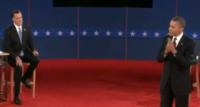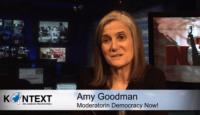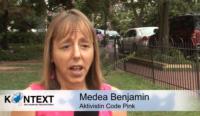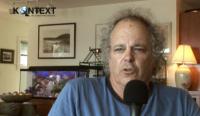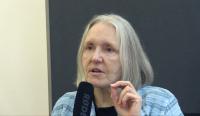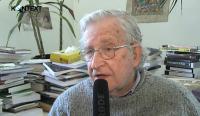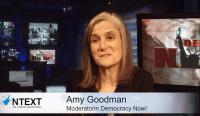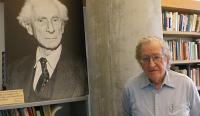A new president was elected on November 6. We are taking this opportunity to speak not only about the election, but also the political situation in the country. We will be evaluating the first term of president Barack Obama, the crisis in the USA and last years protest movement. And we will be discussing how an alternative agenda for America could look. In August Kontext TV traveled through the United States interviewing dissidents, activists and independent journalists. They clarify what's at stake in the USA and what not.
Beside the Democratic and Republican candidates are a number of other candidates from independent parties such as, for example, Jill Stein of the Green Party or Rocky Anderson of the Justice party. Still, only President Barack Obama and his challenger Mitt Romney were invited to the televised debates. Voter turnout in the USA is one of the lowest in the industrial world. The financing of elections has reached astronomical dimensions. The Democratic and Republican campaigns have received around six billion dollars especilly from the financial industry, corporations, investors and the wealthy. Meanwhile many voters are disillusioned by the two party system. They are under the impression that neither party represents the interests of the majority of the people.
Barack Obama promised to close Guantanamo, end the Iraq war, take the global leadership in alternative energies, and to stand for social equality and fair taxes. Obama did not keep many of his promises, many hopes were left disappointed. He escalated the war in Afghanistan and expanded the illegal drone warfare. In the last years, four million families in the United States have lost their homes through mortgage repossession by banks, while the financial industry profited and showered themselves with bonuses. With his health system reform Obama blocked the introduction of national health insurance. His civil liberty policy is today seen as more restrictive than his predecessor Bush. Under Obama's presidency more whistleblowers were jailed than under all preceding US presidents combined.
In Europe tens of thousands of people took to the streets. In the beginning of the last year in Tunisia a desperate fruit seller burnt himself and thereby triggered the Arab Spring. While in the US significant protests during the bank bailout, the intensified financial and economic crisis, the continued occupation in Iraq and Afghanistan and the expanded drone war were missing. Many of the big social movements which supported Obama's election campaign were unwilling to mobilize against him. Then came the demonstrations in Wisconsin and the Occupy Movement. They developed into the largest and diversified protest movement in the US since decades. Even if the occupy tent camps slowly disappeared in the last months or were cleared by the police, dissatisfaction with politics and the system has been growing amongst the people.
In this election campaign the concerns of Americans were not even once considered as an issue, neither by the candidates nor the main stream media: Nothing was heard of climate protection, poverty, the divestiture of the over powering finance industry; there were no debates about the introduction of a national health system, the reduction of the bloated 400 billion dollar Pentagon budget, the end of wars and torture, nor the protection of civil rights. Instead the campaigns offered slogans like “Rebuild America” while the financial industry and investors like the highly influential Koch brothers pumped enormous sums into the Democratic and Republican election campaigns. But there is also an alternative agenda for the reconstruction of America beyond that of Romney and Obama.
